If you are considering taking a freediving course, there are a number of things you should look out for – particularly if the course is a certified course. This article highlights ten things we, at Go Freediving, think everyone should look for on a freediving course. And so, in no particular order, here they are:
#1: Recommendations and Reviews
As with many things in life, receiving recommendations from a trusted source can save time, money, effort and disappointment, by finding what is right for you. There are plenty of freediving schools across Europe that offer safe, professional tuition, but there are also some that fall below the standard you may expect or hope for. Don’t be dazzled by smart websites and rely on what you see on social media pages. Speak to people who have attended courses, or speak to the school itself to ask for testimonials or feedback from students. Many freediving schools will be happy to share this with you. If you don’t know anyone who has attended a course, check independent review sites such as Trustpilot, Google Reviews, Trip Advisor or even the social media pages of the freediving school to get a feel of what that school is about.
#2: What’s included
When comparing freediving schools they can often seem to be offering the same package for the same price. It is only when you investigate further that some additional costs may need to be added. Check whether their courses include the following:
- Freediving kit hire (long freediving fins, rubber weightbelt, low volume mask, freediving snorkel, socks and gloves)
- Freediving wetsuit hire – freediving wetsuits can be very different to Scuba suits
- Boat charter or venue fees
- Course materials
- Preparation materials and information about the surrounding area so you can book accommodation
- Food
- Drinks
- Certification costs
- Certification card
- Course debrief
- Insurance
- Accommodation
- Photos of your course
- Video of your course
#3: Terms and Conditions
Some freediving courses are conducted in the open sea – which is understandably at the mercy of the weather. What happens if your course is cancelled? What happens if there are not enough students to run the course? What is their refund policy? These are all very important questions. You should familiarise yourself with the terms and conditions of the course, and if you want to protect yourself against any potential loss (travel costs, accommodation costs etc) we always recommend taking out a small insurance policy for complete peace of mind.
#4: Pre-course organisation
The beauty of a freediving course is that they are run in a number of different ways – you can attend weekly sessions spread across a number of weeks, attend one day courses or weekend courses. The choice is yours! Whichever course you take you should feel confidently prepared from the moment you arrive for your practical elements. There should be no unexpected surprises. Does the course you’re looking at offer the following:
- Full joining instructions
- Information package
- Online booking for your kit
- Downloadable paperwork to read and sign in advance of attending
- Fully accessible theory package (online or downloadable)
- Regular emails or support confirming your progress and status before the course
- Access to a team member via email to answer any questions before your course starts or ends
All of these support mechanisms demonstrate an interest in you and your development as a freediver rather than an opportunity to fill booking quotas for courses and should make you feel encouraged and excited about your upcoming course.
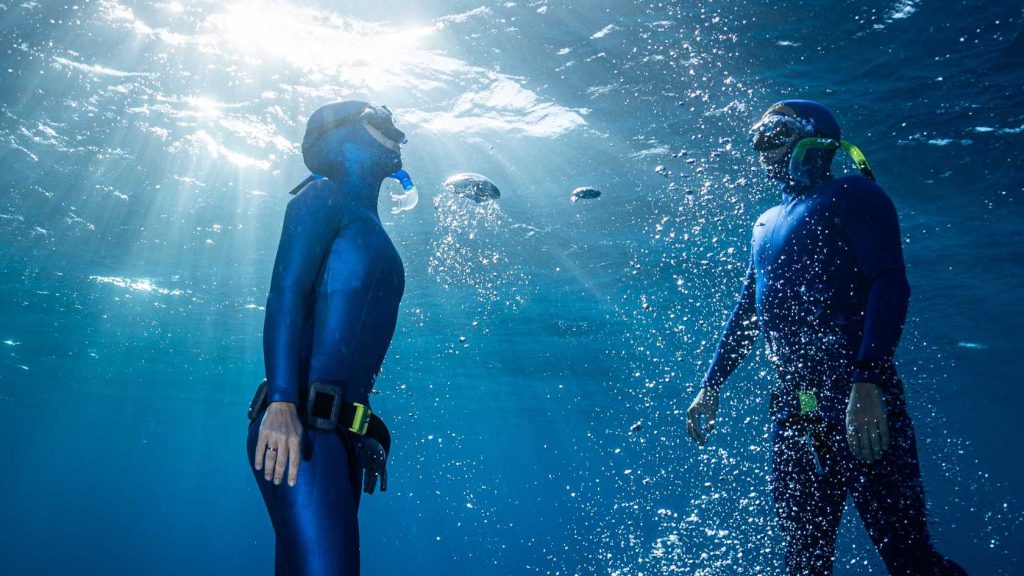
#5: The Freediving Programme
There are a number of different freediving course programmes to choose from; AIDA, RAID, SSI and PADI are the most popular. Researching what each programme offers can often identify which one suits you personally, whether you are new to the sport, crossing over, or progressing.
All freediving courses should have theory input. For the weekly courses this can be incorporated into weekly sessions or for one day or weekend courses is often undertaken in advance of the practical elements, most often from the comfort of your own home. The course should be up to date and in line with current freediving standards in accordance with the freediving organisation the school represents. Check to see the coursework you are provided with is the most up to date published version
#6: The venue
The venue for a freediving course can often be what makes or breaks a decision to book a course. If you have the opportunity to visit the venue beforehand, or at the very least check out images and videos from that location you can get a better perspective of what to expect. For example, if your freediving course is completely pool based, but you want to work on depth, the course may not be the right choice for you. Or, if you are not a strong swimmer, or lack confidence in open water, the sea with it’s currents, waves and natural choppiness may be just a little too daunting. For our students, we focused hard on finding a venue that provided a calm, tranquil learning environment for students. So, while a purpose built dive centre in a disused quarry initially sounds a little unusual, the venue is more like a beautifully calm lake. This provides a calm, relaxing environment to learn while still having fantastic visibility, oodles of marine life and and an underwater playground featuring submerged planes, boats, cars, structures and even a helicopter that freedivers love so much.
#7: The Teaching Style
Freediving is considered by many to be an extreme sport, however, it is actually a very peaceful and calm sport. Many students have likened it to yoga or meditation. There are quite a number of different teaching styles and you really need to consider which type suits your learning and comfort best. Some schools will have a more forceful, dare we say ‘macho’ teaching style, while others will have a calmer, student centred approach to teaching. Go Freediving’s focus is the latter. We teach freediving, even in group courses, with an emphasis on individual learning. We focus on the journey rather than the destination.
#8: Safety
When choosing a freediving course that is right for you, safety is one of the first things we hear our students comment on. You should never feel compelled to get in the water unless you feel completely safe – whether that feeling of safety comes from your instructor support, your comprehension of theory, your trust in your buddy, the quality of your kit or any one of a hundred other things. You should feel comfortable declining to take part in any activity you feel is in itself unsafe, or you feel unsafe in yourself if you took part. Safety in learning is one of the main reasons our student to instructor ratios are so low.
#9: Equipment
Freediving is obviously different to scuba diving! You are not relying on tanks to keep you alive. However, your equipment as a freediver is still very important, not only in terms of comfort, but functionality. You should expect to be supplied with good quality, well-fitted freediving (not Scuba) kit for your course. The kit should be clean, well maintained and fit for purpose.
#10: Gut Instinct
There is often no better indicator for you than your own gut instinct. It is very powerful and rarely wrong. If you get a good feel about a dive school or course, it could be the one for you. We’d still recommend doing your homework and checking through these few tips – even if it is just to prove to yourself you were right all along!
Learn to Freedive With Go Freediving
Go Freediving is the longest established, most experienced and friendliest freediving course provider in the UK, led by world class freediving instructor trainer Emma Farrell, and her team of personally trained instructors. No other course provider has such a good instructor to student ratio, safety record and personal touch. We also offer one of the largest freediving course schedules in the UK meaning you’re more likely to be able to take a course when YOU want to – making the best time to do a freediving course a time that suits you.
Whether you’re a beginner dipping your toes into the world of freediving, a seasoned pro looking to turn professional, or simply a freediver of any level who wants the best freediving holiday in the world, we’re here for you!
Also check out our online guide, The Beginners Guide to Freediving by clicking here!
Want more from Go Freediving?
Scroll to the bottom of our webpage where you can sign up to our newsletter, find the dates for all upcoming trips and courses, read even more blogs, or connect with us on social media!
See you in the water!
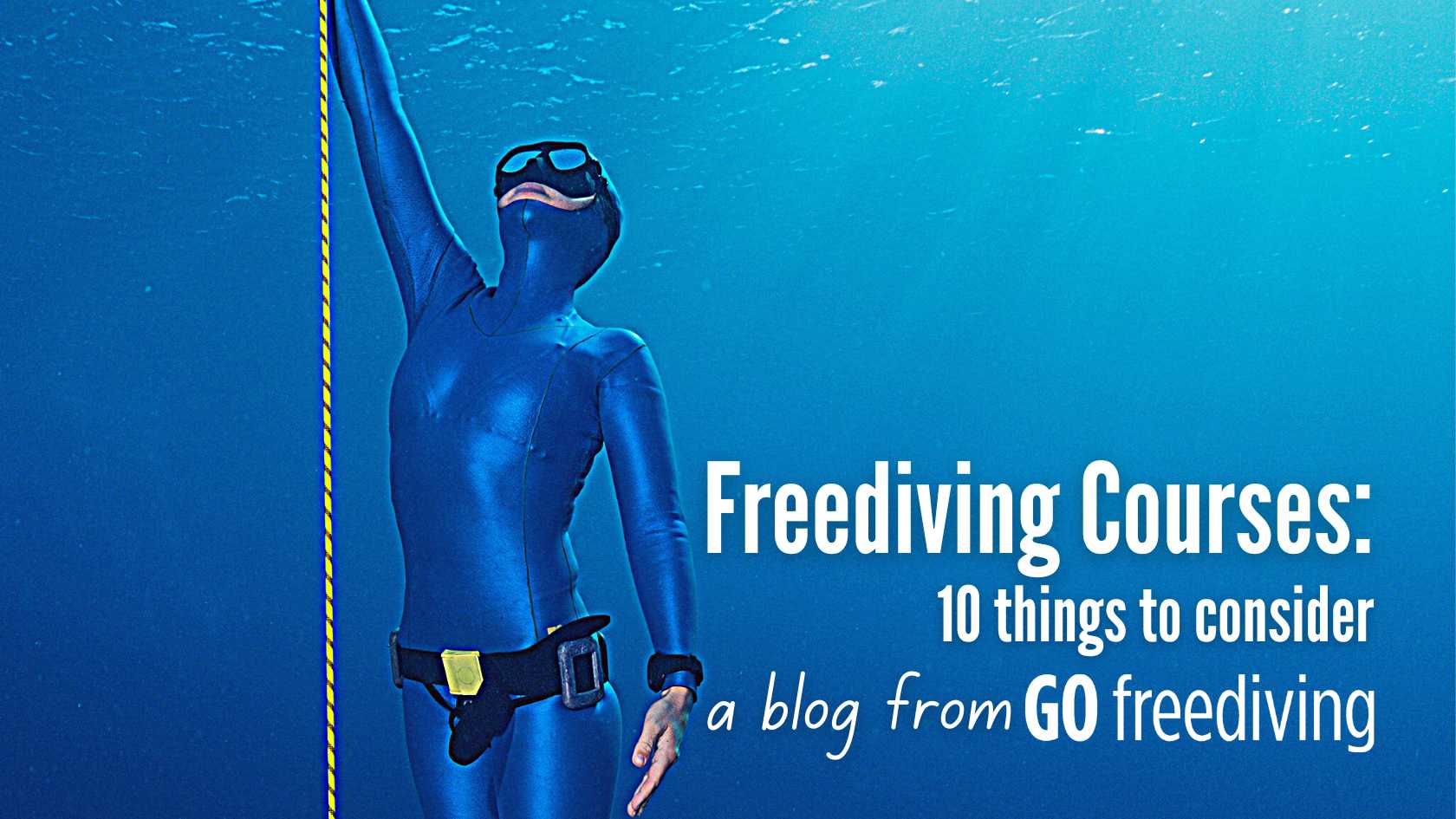
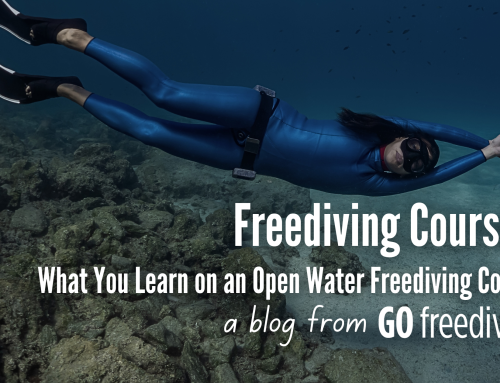
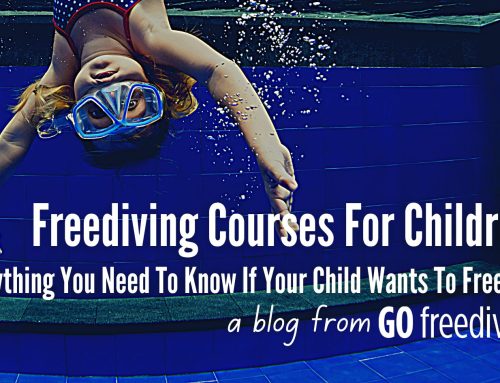
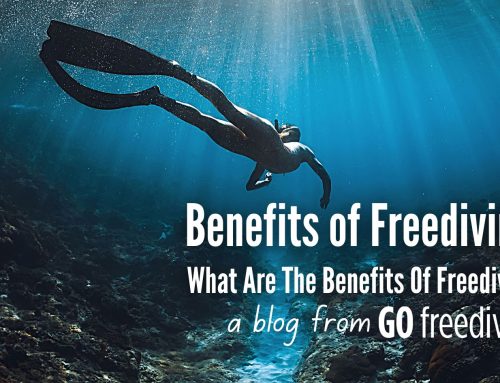
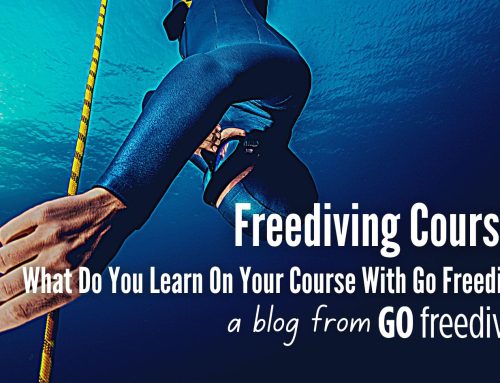
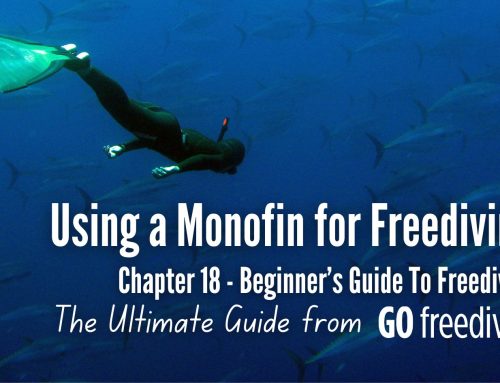
Leave A Comment